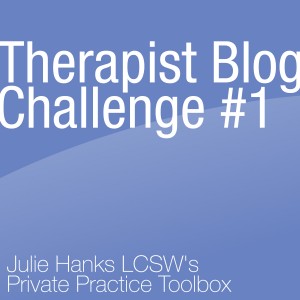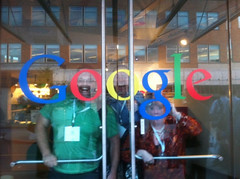Write a professional blog post on a topic that millions of people are already searching for.
For our first 2013 therapist blogging challenge I want to you to provide your unique professional perspective on a top Google search topic or story. It can be local, national, or global.
Apparently, millions of people are searching for people, sports and entertainment in the US. The following topics are from a list of Hot Google Searches (US) on Jan. 6, 2013:
- Russel Wilson Russell Wilson, Seahawks Defeat Redskins, Injured Robert Griffin III, 24-14
- Downton Abby Nearly 8 Million Turned to 'Downton Abby' Premiere
- Ray Lewis Ray Lewis' Post-game T-shirt Brings Attention to Psalm 91
- Jillian Michaels Alison Sweeney Blogs: Jillian Michaels Is Tougher Than Ever on The Biggest Loser
- Freddie E Hip-Hop Artist Freddy E Dead In Apparent Suicide
- Honey Boo Boo Mother June Shannon Banking on Honey Boo Boo's Future
Feel free to pick from any top Google search in your own country. Get creative! There are many different angles you can take from the search list above. Feel free to focus on one topic or the collection of top search topics.
Keep your article between 300-600 words, make it easy to read, use a conversational tone, and gear your articles toward your ideal client (not other professionals).
Not only will this post provide a helpful service to your site visitors, and help them get to know your professional perspective, it will also increase traffic to your private practice website. and build your practice.
After you've selected the topic for your blog article:
- Write and post your blog article in the next 7 days. If you miss the deadline or you read this article months later, that's OK too.
- Post a link for this blog challenge in the comment section of this blog post.
- Read, comment, and share other therapist's articles.
- Tweet your post using hashtag #therapistblog and tag @julie_hanks so I can retweet it.
- Pin it on the challenge Pinterest Board. I've invited everyone who posted a comment on the initial blog challenge post as collaborators so you can pin onto the group board.
- Spread the word and invite mental health colleagues to join the challenge. Articles can be added anytime throughout the year.


 Do you know where your website visitors come from? If not, it probably a good idea to start. I use
Do you know where your website visitors come from? If not, it probably a good idea to start. I use 


As healers, we genuinely like to do our work. Guiding clients through the therapy process and seeing them make progress is why we do what we do. But if you're in private practice, you know there's a lot going on in the back end and that it's crucial to run an efficient and organized business.